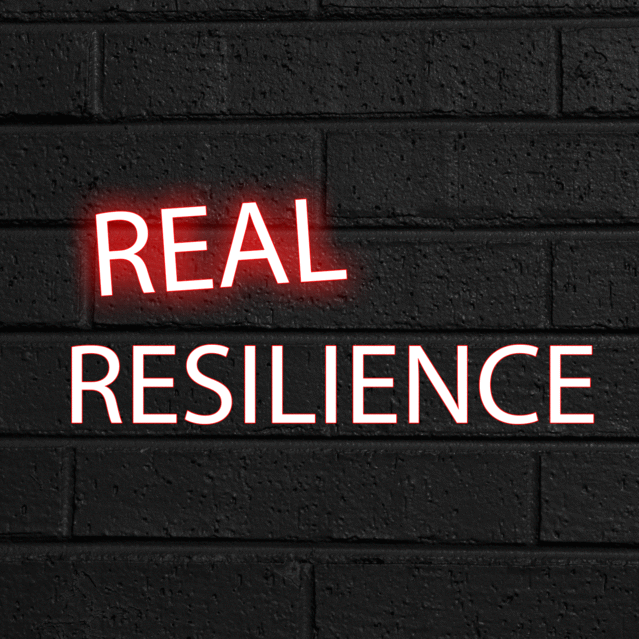Resilience
Real Resilience When We Need It Most
Neuroscience-backed information and tips you can use today.
Posted March 21, 2020

Regardless of who you are and what your path is, we are in tough times to say the least. We have to make sure we are looking after ourselves. It doesn’t have to be complicated and we don’t have to attempt to try and stick with unrealistic, positive mental health practices and resilience techniques.
I created the warr;or21 program to share a practical and neuroscience-backed program in order to help people further develop their resiliency and enhance their mental health.
Everyone deserves this.
It was originally created for first responders but now participants include people from all professions and students from across the world. This article is adapted from that program and for everyone to think about their mental health and importantly try the exercise at the end.
To start, let this sink in: Before you can take care of others, you must start with yourself. That’s not foolish, it’s smart.
The research on resilience is clear. Accept and normalize feelings of stress, anxiety, and fear.
Yep, that’s right. Don’t ignore those feelings but acknowledge them, name them, and then own it. This can help you manage them instead of those emotions consuming you and dictating your actions.
Allow yourself to have feelings. The question then becomes what do we do with that stress, anxiety, and fear? It is our approach and attitude that can help us according to Dr. Hans Selye:
“Adapting the right attitude can convert a negative stress into a positive one.”
You are human and thus you have feelings and emotions. The key to adopting the right attitude has to do with your perspective and control. Check out this video below:
With that perspective and control you can own those thoughts and emotions. Dr. Benjamin Laitman shares the following:
“You are supposed to feel a little bit of fear, a little bit of anxiety... I’m going to feel that discomfort, I’m going to own it.”
However, you don’t want to let those feelings run amok and dictate your actions and cloud your thinking. Acknowledging them can be a critical first step to managing them. Dig deeper if you’d like by reading this brilliant article by Alicia Clark and this great book by Dr. Alex Korb.
Here’s a snippet from Clarke’s article:
"Research shows that anxiety can actually be a pathway to our best selves…
To be sure, severe anxiety can be debilitating. But for many people who experience it at more moderate levels it can be helpful, if we are open enough to embrace and reframe it."
Reframing it entails understanding that with perspective and control, we remind ourselves that we can have control over how we view things. We didn’t ask for this (at the time of writing this, we are in the midst of the global COVID-19/coronavirus pandemic), but we certainly do have control over certain things and this includes our perspective.
For example, we have control over certain aspects of our lives. To fight any virus and to try to avoid getting sick, we first must follow best practices and advice from the CDC. We can also build our immune systems by ensuring we have a healthy diet, exercise, sleep well, and socialize (again, by following best practices). Let this bring some comfort to you because you have control over that.
Dr. Robert Leahy also shares some practical tips on limiting our intake of the news. That can add anxiety instead of reducing it:
Putting limits on your news consumption and shifting your attention back to day-to-day duties will help quiet your worry and coronavirus anxiety…
You have a choice in where you put your attention, so keep tabs on how much news you consume and carry on with the routine parts of life that are within your control.
Finally, don’t ever forget, true resilience is the perspective of knowing that we don’t have to take all of this on by ourselves. If we need help, reach out to friends, family, and other people (like Crisis Text Line). Sometimes that means professional help too, and there is nothing wrong with that. In fact, that is true strength.
You always had it in you too. You got this!
Try It:
Resilience practices are not just about reading about them, it is doing them. This practice is adapted from the warr;or21 program and inspired by the great work done by the brilliant Dr. Rick Hanson (including this amazing book, Hardwiring Happiness).
Gilkey and Kilts share the following on the importance of making sure we're working on our mental fitness:
The more cognitively fit you are, the better you will be able to make decisions, solve problems, and deal with stress and change.
Try this starting Monday and then push yourself. Let’s start re-wiring our brain. Do this mental workout for five straight days (yes, push yourself and do it for five days):
- Pick a powerful, strong, positive word that describes you (pick a different word each day). Think of a time when you recently demonstrated that word.
- Dig deeper into the story: how you handled it during the situation and what you felt, and then what you felt and thought afterward. This should take more than a few seconds so stick with it.
- Share this word and experience with someone close to you and ask them to do the same.
Consider sharing it online (Facebook, Twitter, Instagram, wherever!). If you do, use the #warrior21Days hashtag. I’ll be sharing mine at @warrior21days (Twitter and Instagram) and @JeffTPhd (Twitter).
Conclusion
Don’t stress this, including if you feel like you missed out because you are reading this article days, weeks, months, or even years after it was published. We all have our own path and move at our own pace. Start whenever you’d like.
Does this change what is going on beyond your control? Nope. What it does is give you a perspective and it can help you handle today knowing that you have resilience already in you and your story is reminding you of that. That’s true resilience. You got this!
Thank you to Shiloh Catanese, Psy.D., for assistance on earlier versions of this article.




